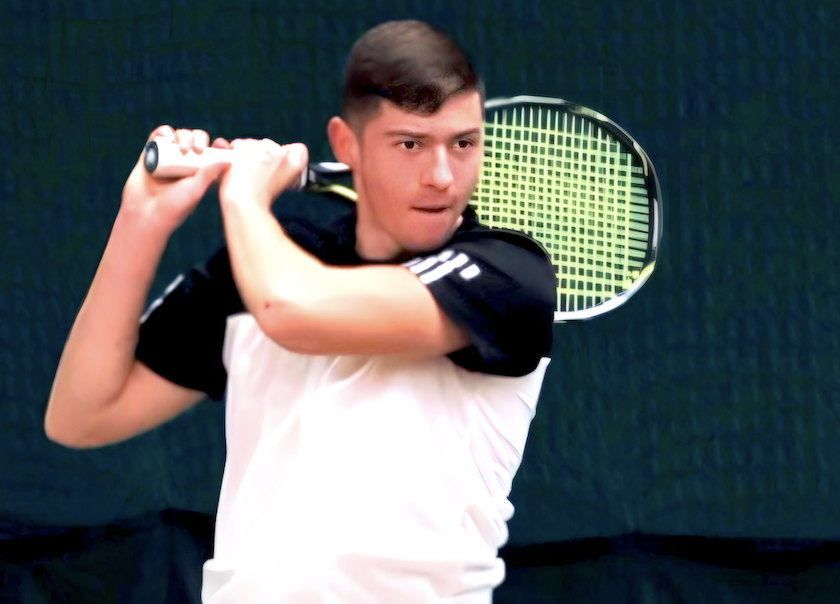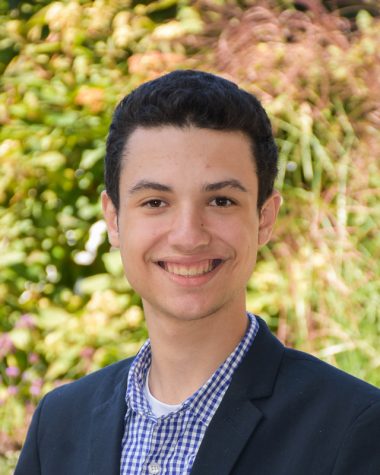Sports fanatics often applaud athletes for dynamic, game-shifting plays that spark rallies and provide fuel for a team. While athletes with skill deserve recognition, fans seldom discuss the grueling mental element of athletics. Competitors must navigate an intensive atmosphere, battling through pressure.
Among the most mentally rigorous is tennis. Except for doubles, tennis is an individual sport. No lead is safe, as the score swings erratically and resets to love-all after a player wins a game. Furthermore, there are no substitutions or timeouts.
That’s why a stalwart coach is crucial to the development of an athlete. A dedicated mentor who offers support and wisdom breeds enthusiasm and confidence, the making of a successful athlete.
While coaches rarely intervene during matches in professional tennis, at the high school level, coaching makes or breaks a player’s esteem and the team’s morale.
Luckily, new Head Tennis Coach David Argasinski understands this dilemma. As a former professional tennis player himself, Argasinski knows the taxing nature of the sport and offers sound insight to his players.
For me, my downfall in athletics has been a lack of confidence. I am often hesitant and allow negativity to ambush my confidence. However, under Argasinski’s tutelage, my attitude transformed.
Due to his winning philosophy, Argasinski employs a fierce method to invigorate the team’s spirits. Using this technique, Argasinski strives to instill confidence while keeping the team from becoming complacent. This perspective rekindled an interest in athletics and continues to drive my progress. It’s not just me; but the team developed considerably since the season started, and for the first time since 2019, the boys’ team will finish with a winning record. I would attribute Argasinski’s coaching style to such success.
Argasinski also introduced the importance of playing one point at a time. While the overarching score may seem daunting, a single point can change momentum. During changeovers, Argasinski ensures that I take one point at a time, without worrying about the overall score. In these cases, I have been able to win critical points, swaying the match to our team.
Furthermore, Argasinski demands maximum effort. This partly comes from the strict pedagogy of his coach Peter Lundgren–who most notably coached Roger Federer for three years–and his roommate at the Juan Carlos Ferrero Tennis Academy in Spain, Carlos Alcaraz, the current World number three and two-time Grand Slam champion.
Argasinski experienced the grit and determination needed to become one of the best in the sport and often recycles lessons to the team. Through this, our team recognizes that nothing less than full effort is unacceptable. Argasinski’s policy of denying excuses and focusing on effort and growth is commendable and should serve as a model for other coaches.
Even with his several victories in Challenger tournaments worldwide, Argasinski joined the School’s team to spread his exuberance for the sport, hoping to inspire a new wave of tennis players. Argasinski’s energy is infectious, and the team certainly caught on due to his devotion.
Even more, Argasinski takes great care to ensure his players reach their fullest potential. Argasinski will play with every player on the team to maintain growth and often praise players for improvements, while offering useful constructive criticism to enhance skills. Additionally, Argasinski checks in with players, even outside of practice, to share shrewd advice and provide further feedback.
Players should consider themselves lucky to find a mentor who will venture each up and down, and I am beyond grateful to have Argasinski as my final sports coach at the School.






















































David Argasinski • Jun 10, 2024 at 6:57 pm
Thank you Evan, and Brimmer.